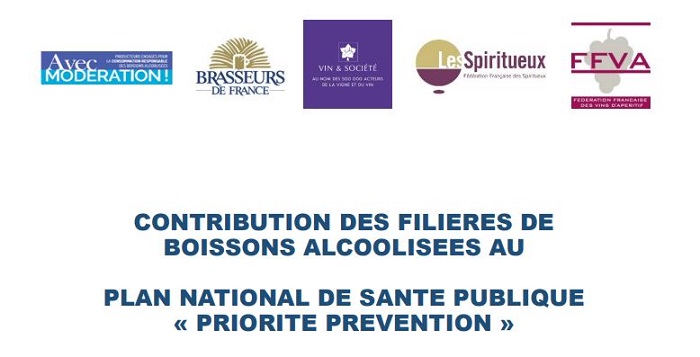
On 27 June, the French beer, wine and spirits producers submitted to Emmanuel Macron a 4-year plan with 30 concrete measures to reduce alcohol-related harm to which 1.2 million euros will be allocated each year.
Encouraging responsible drinking behaviour is one of the priority for producers and marketers of alcoholic beverages who are fighting misuse and abuse of their products and associated risks. The proposed plan is a document based on a collective reflection and is articulated around three pillars, each including operational actions.
The first two pillars aim at preventing risky behaviour and situations and as well as focusing actions at specific target groups most at risk such as pregnant women (see new videos). The producers will also maintain their effort in encouraging responsible drinking in a context where 8 out of 10 people have a moderate consumption. This means, targetted prevention programmes involving all relevant stakeholders such as Students' Union, Universities, Retailers, Bar owners, etc to fight risking drinking behaviours such as binge drinking or drink-driving.
The 3rd pillar, comprising 5 specific actions, is based on a public / private approach, working together and experimenting new prevention avenues to be piloted, scientifically evaluated and rolled out in case of success. Avec Moderation! – engaged in prevention programmes for more than 30 years with alcohol beverages producers - is suggesting to work on the following objectives:
On the latter, the proposal is to design a device (computer terminal / screen) for the waiting rooms linked to a secured website allowing patients to complete a health questionnaire before the appointment with their GP. Based on results (only accessible to him), the GP could take immediate actions. The counterpart of this approach is a better information and training of GPs in implementing brief interventions; using test to detect alcoholism (e.g., C.A.G.E); and in tackling dependency.